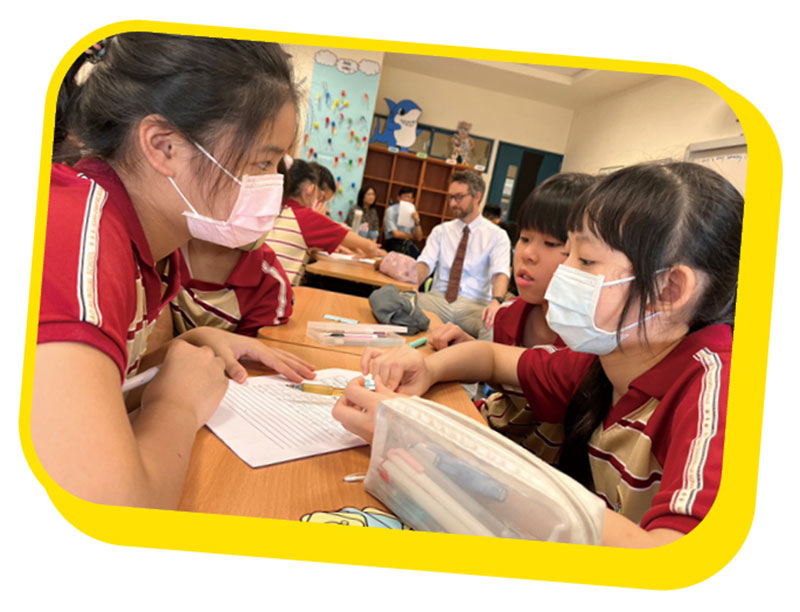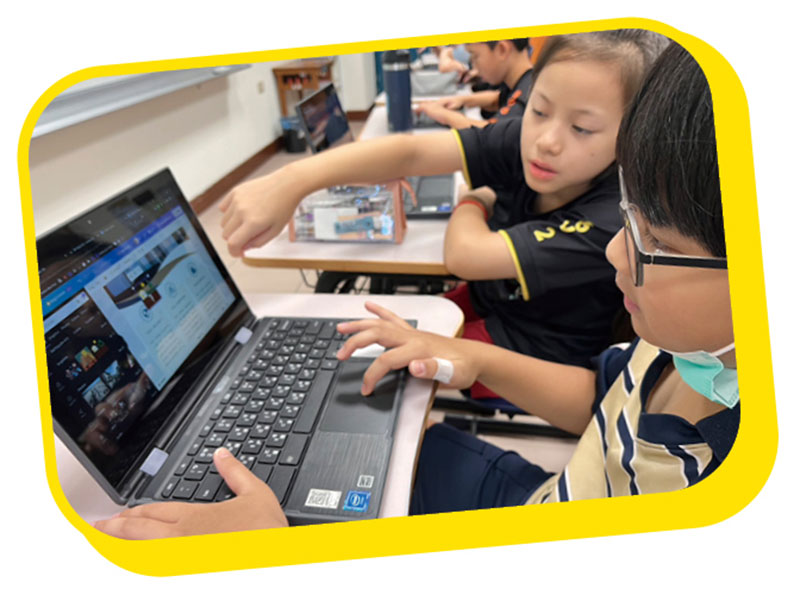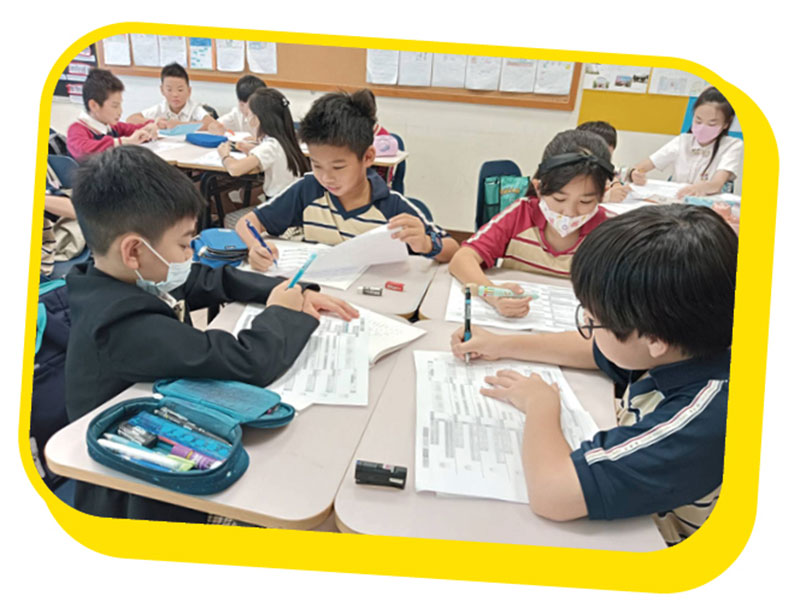

~ Zachary Warmke
Curriculum Coordinator
In a traditional classroom, there is the basic belief that knowledge flows from the teacher to the students. This sounds obvious; the teacher presents the content and assesses the students. Usually, that means taking a test. If students pass the test, we say they have learned. Most of us grew up in this kind of class, but what if this approach is flawed? Is there a better way to evaluate students’ learning over time? The International Department strives to build a curriculum that will help students develop the skills and knowledge they need to be adaptable lifelong learners.
Checking in on Students’ Progress
Our English curriculum emphasizes group discussions, close reading skills, and students’ personal expression. We push students to think critically and to share their thoughts with others. In doing so, they start to understand how and why authors write, and it lets them hear others’ perspectives.
Teachers check how students critical thinking and language arts skills are affecting their thoughts about the things they read. Our students are very articulate when discussing these topics. They are able to not only explain the meaning of texts, but also talk about the context in which they were written, how the authors wrote them, and why the authors included certain elements.


This approach applies to writing projects as well. Our project rubric includes the item “Organization and Development,” meaning a student’s ability to organize their research and writing skills throughout the project. Teachers check in on their progress several times to see if they are applying their skills well. If not, teachers help them get back on track.
These periodic evaluations affect the project’s final score. This motivates students to apply themselves during every stage of the project. It’s important to understand that the score is based on students’ effort in applying their skills, not their final writing.
Keeping Up with Students’ Writing and Grammar
Our CETs focus on teaching grammar. CETs use workbooks to check how well their students are learning grammar skills. However, there is more to this process than meets the eye.
When CETs introduce a grammar concept, they start with easy examples. Then they add more complex examples and contexts to use it. Eventually, students are able understand the concept, and can explain why it exists and how it works.
The same is true for Achieve Writing projects. Each AW includes theme and grammar points. Students research the theme, then use the grammar to write their opinions about it, inform others, and so on. Their “Organization and Development” score is based on students’ effort in applying the grammar and thematic elements throughout the AW project.

Major Exams vs. Ongoing Evaluation
Tests, such as weekly phonics or spelling tests, as well as midterms and final exams, are still important. Tests push students to review the content they’ve learned. They show us what the students have learned. But ongoing evaluation through discussions, Reading Workshops, and projects show us if students understand how and why that content exists. That shows a deeper level of understanding than just memorizing info to pass a test.
We use evaluations to help our students reach even higher goals in the future. We hope that by understanding our methods, you can better understand the KCIS’s educational philosophy.
From the Editor
Transforming Assessment in the Digital Age
國際處主任 賴國宜
When we think of "assessment", exams may immediately come to mind. For many, the perception of learning involves teachers imparting knowledge and assessment is seen merely as a test of how much students can recall. However, our perception of learning is evolving in this age of information and technology. As we support teachers in adopting dynamic methods, it's essential to adapt how we assess learning outcomes. In Mr. Warmke's article, you'll discover how the English curriculum provides diverse feedback to students through methods like class discussions, project inquiry, and achieve writing. We aim to help students not only grasp what they learn but also understand how they learn, fostering the development of enhanced learning skills and competency.
提到「評量」時,您馬上聯想到考試嗎?對大多數人來說,學習的認知通常是老師負責傳授知識,而評量就是測試學生記得多少。然而,在這個資訊爆炸、科技快速發展的時代,「記憶知識的能力」早已不再是基礎教育該強調的唯一重點。在我們協助教師進行活化教學、除了教師角色和學生學習方式的改變,同等重要的是學習成效評量方式也必須隨之改變,這一次,透過課研組長Mr. Warmke的文章,我們帶您了解英語課程如何透過多元評量方式,例如:課堂討論、專題探究和主題寫作等,提供學生在學習過程中不同的回饋,幫助他們知覺自己如何學,且如何學得更好,並引導學生靈活運用所學到的知識和技能解決真實或複雜的問題。
叮叮噹、叮叮噹,耶誕節讓12月充滿祝福與愛,國際處今年仍規畫了滿滿的耶誕活動。首先是每天創造驚喜的聖誕月曆活動,還有英語村每周二、三的Candy Grams(糖果傳情)活動也很熱門,孩子們用賺來的康橋幣購買康橋專屬聖誕卡,親手寫上祝福,英語村的小天使會幫大家傳遞給指定的師長或朋友。最後,精彩壓軸的是一、二年級寶貝的聖誕歌謠表演,從12月20到22日,連續三天,在上、下午的大下課,用他們可愛的歌聲將溫暖的祝福散播整個校園。
在此,也祝福所有康橋家庭,耶誕佳節快樂、闔家平安喜樂。